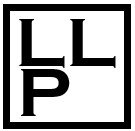Bridging Divides
For the past several weeks, we’ve been spending a lot of time thinking about bridging programs. These are formal efforts to connect people from different backgrounds or communities. We’d seen an excellent segment on the PBS Newshour that explored the topic in depth. Over the course of our travels, we’ve seen a lot of great examples of libraries doing this type of work and were curious to see how the library and bridging communities were working together.
On one of our early library visits - to the Wilmington Memorial Library in Wilmington, Massachusetts - we heard about a month-long series of programs focused on civic discourse around difficult topics. It was a new concept to us (the program, not civility) and we were really impressed. Since then, we have seen many similar efforts occurring in libraries all over the country.
As we dug deeper to learn how libraries we working with bridging programs, we were surprised by an apparent disconnect. For example, of the more than 6,700 bridging projects being tracked by the Bridging Project Initiative at Princeton University, fewer than 50 were associated with libraries of any sort. We knew this wasn’t an accurate picture of libraries’ efforts in this area.
To learn more, we began reaching out to individuals and organizations on both sides of this equation. We spoke with people at the American Exchange Project, American Library Association, Bridging Divides Initiative, Library Journal, Listen First, Living Room Conversations, and Resetting the Table, among others. Everyone we spoke to recognized that libraries are natural partners for this kind of work - but people also realize that libraries and bridging organizations aren’t always well connected.
Many programs caught our attention, but one that has some great events coming soon is America Talks. Its work is part of the National Week of Conversation taking place in April. Participants will be paired for face-to-face video conversations with others who may have different backgrounds and perspectives. Every conversation is an opportunity to move from “us and them” to “you and me.”
By providing access to technology and connectivity, libraries make it possible for underrepresented voices to be heard. There are a couple of things libraries can do to support America Talks. First, libraries can help spread the word. Materials and resources - which include information on America Talks, media assets, and guidance - are all available and can be used to spread the word through email, social media, library websites, and earned media to encourage participation in the program. Second, libraries can host these conversations - either in person or virtually. Resources are available with details on hosting as well. You can register here for America Talks activities and resources.
In the coming weeks, we’ll be continuing to look at bridging and will be sharing additional information. We invite you to think about how you have bridged differences in your life. If you've been part of an organized program, we'd love to hear about your experiences and any advice to share with those new to the effort. We’ll be sharing our first guest post - by Annie Caplan of Living Room Conversations soon, so stay tuned
The Library Land Project will also be hosting two Zoom confabs in April to foster conversations, forge connections, share best practices and identify more effective ways for libraries and bridging programs to work together. If you’re interested in participating, please contact us at info@libarylandproject.org.
Rediscovering and strengthening the connections between individuals and communities is important work. It’s work that people across the country are engaged in every day. It’s work that public libraries are a part of and we’ll continue to highlight and support these efforts in every way we can. We hope you will as well!
